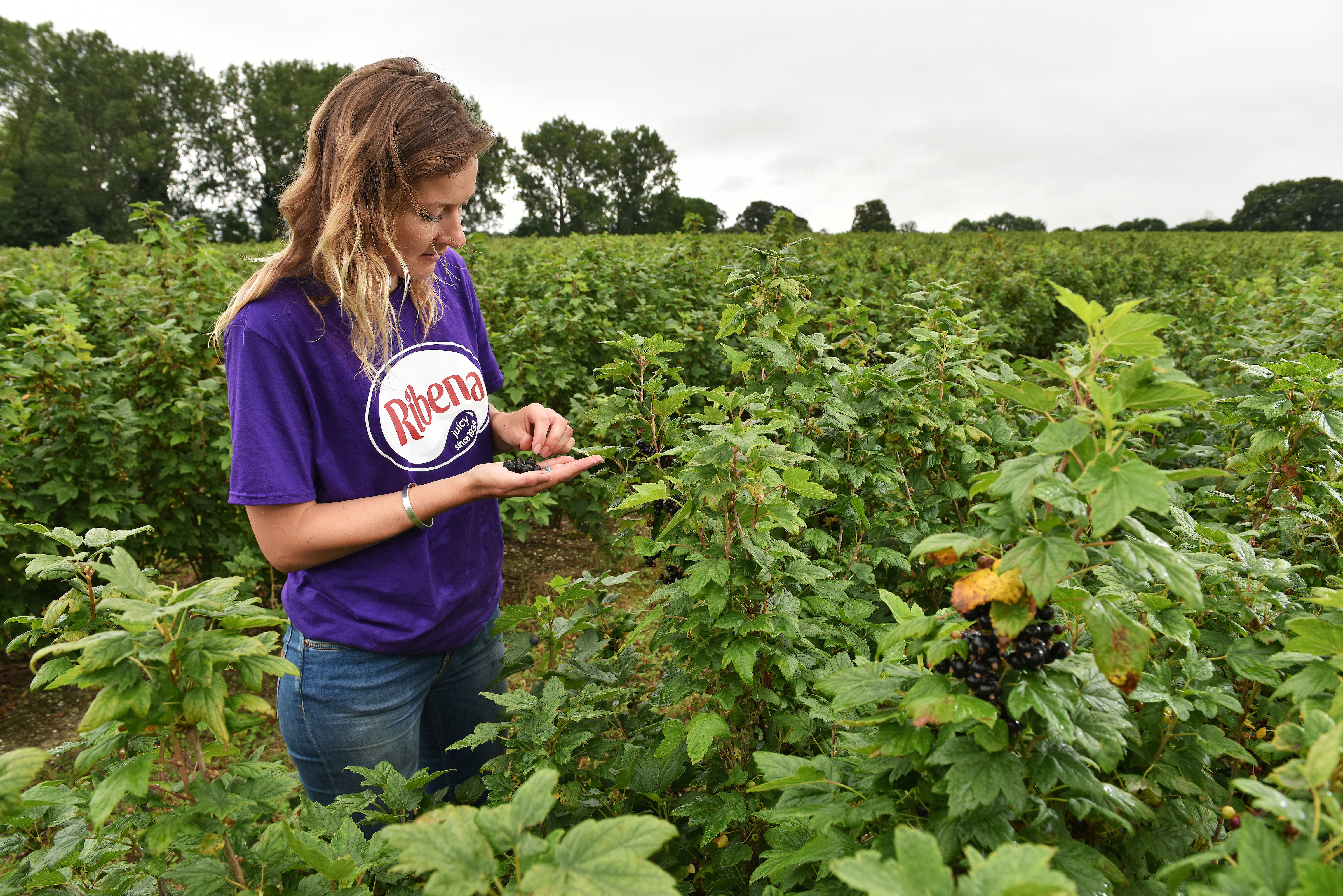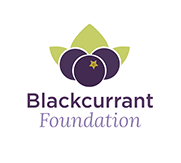ROSIE BEGG

Hi I’m Rosie Begg a second generation grower. My Dad took on the Ribena contract in 1995. He very sadly died of a brain tumour when I was 16. I have memories of being on the back of the harvester during school holidays – being a moody teenager at the time it didn’t feel very special but now I treasure those memories on the farm with him.
How long have you been growing blackcurrants?
Our family has grown blackcurrants for 24 years but the farm has grown them since the 1950s.
What varieties do you grow and in what region?
We are based in Norfolk and grow Gairn, Starav, Hope, Alder, Tirran and Klibreck.
How much do you harvest annually and where do they go?
We are very proud of our history with Ribena, everything we grow goes towards making their delicious drink and it always has done.
What else do you grow?
Victoria plums and arable crops. We are quite good at growing thistles but haven’t found a market for them yet!
Why do you love growing blackcurrants?
I am so proud to grow fruit that not only tastes delicious but also has incredible health benefits. I love that we produce a British superfruit and I am passionate about the variety of ways you can add flavour, colour and vitamins to your diet by using blackcurrants. There are times when I certainly don’t love them (hand planting cuttings on cold winter days) but the hard work, time and energy is all worth it.
Can you give one tip that people could benefit from when growing blackcurrants?
Walk the fields for gall mite. It’s time intensive and I am hopeful there are innovations that could change this but it’s essential to stop the mites spreading and infecting other bushes. We do it multiple times a year on each plantation.
Can you tell us about some of the ways in which you manage the land sustainably?
We are trialing different plants along the blackcurrant alleyways, yarrow to help reduce snails and phacelia to encourage pollinators and reduce aphids. By increasing the insect population, we also hope to increase bird numbers across the farm.
We have a Higher Level Countryside Stewardship scheme across the farm and follow the LRS Farm Stewardship Six Point Plan. There are a variety of bird mixes, margins, and pollinator mixes as well as numerous bee hives, bird boxes and bat boxes.
We are also part of The Upper Wensum Cluster Farm Group – a landscape scale conservation project involving 22 farmers in the beautiful Upper Wensum river valley working together to help preserve and enhance the rare and precious chalk bed river.
What’s your favourite way to enjoy blackcurrants?
I freeze a huge amount and then every morning I grab a handful and throw them into my porridge or on top of my cereal. One of the best ways to get Vitamin C and Calcium.
If you were a blackcurrant artist what genre of art do you think best represents you in your growing approach and why?
Modernist. My background isn’t in farming, I worked in finance and then marketing for 6 years in London and have just returned to Norfolk. Not knowing anything about farming has made the last year very challenging but equally I believe it gives me a unique perspective and has meant I have to rely on gathering data and analytics to make decisions as I don’t have the farming intuition that comes from years of experience. My vision is to make our farm a resilient, diverse exemplary business fit for the future with all decision making being data-driven.
